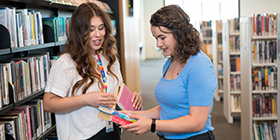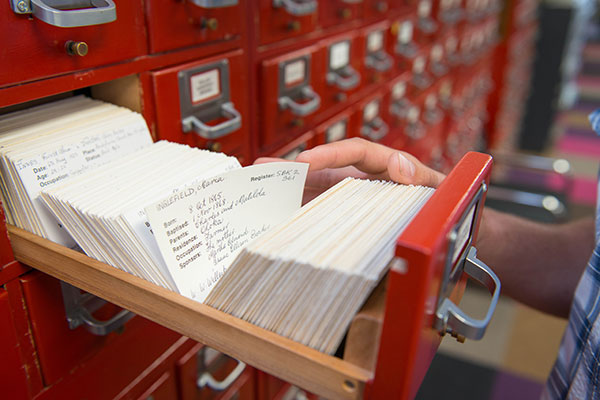I’ve just completed a six-week course on family history, ably run by colleagues here at Christchurch City Libraries. It’s been fascinating and I recommend it for anyone with an interest in history and/or their family.
Taking a class at the library gives you an insight into just how much family history information is now available. The Internet and digitisation of records have made it so much easier to find out about your family's history, and every day more and more is added to the store of records online. By using the library's e-resources, many of these records are free to access. Christchurch City Libraries also has a wealth of resources that are not online, such as registers for Canterbury churches, street directories and electoral rolls.
Once you start, it may become quite addictive. There will be some surprising finds. Some of the "family stories" that my mother told me have been proved to be quite wrong. Whether she made them up or whether she herself was wrongly informed I don't know. Her belief that both of my great great-grandmothers (on her side) were Scots is totally untrue. There is a Scotsman, but a long, long way back. There are a large number of very poor East-Enders; perhaps Mum or her family were ashamed of them and sought to create a more romantic provenance for me.
It's fascinating but also frustrating. My paternal grandfather seems to be a man of mystery entirely - where he came from has so far eluded me. Which one of the three Herbert James born in the same year in London was he? Through the Births, Deaths and Marriages Index I have been able to order his marriage certificate from the General Register Office in the UK, which tells me that he was the son of Richard James, so I can now head off down the correct path.
There have been some interesting discoveries; my favourites so far are Joseph Morgan Melville, who worked as a shipwright in Chatham Naval dockyards in the early Victorian period, and William Douglas, a rope-maker, also employed at Chatham around the same time. So I chased down the website of Chatham Historic Dockyards and the Victorian Rope-works there.
William's daughter Ellen had ten children and lived to be eighty-one; census records show her still employed as a laundress at 70. Poor women worked hard.
This is the part I enjoy most about family history, finding the social history behind the names. It takes you to places and subjects you never would have thought about otherwise. Investigating my grandfather's role as a gunner in the First World War took me to books on field artillery, to see what kind of guns he would have lugged across Northern France. An interest in field artillery is not one I normally possess. All I have to say is no wonder he developed a hernia.
This herniation of my grandfather is also covered in his army service record; one thing about the army is that they kept good records, and these records are often a treasure trove of things you wouldn’t have been able to find out any other way. My great-uncle was dismissed from the army when they found out he had a heart-murmur; my great-great grandfather joined the East Kent Regiment of Foot and spent twelve years in India; he also had a birthmark on his left shoulder.
So if you're thinking of compiling a family tree, these classes will be on offer again next year. In the meantime, quiz your older relatives about what they know of the family history, and work from what you yourself already know. Meanwhile, I'll continue to bore my friends and colleagues with new discoveries about my own family.
Start your research online
- Christchurch City Libraries Family history guide
- Finding your World War One soldier – a quick online guide
- Family history eResources - including Ancestry.com, Find My Past, and Christchurch Cemeteries Database.





Add a comment to: Family history at the library; unravelling the mysteries